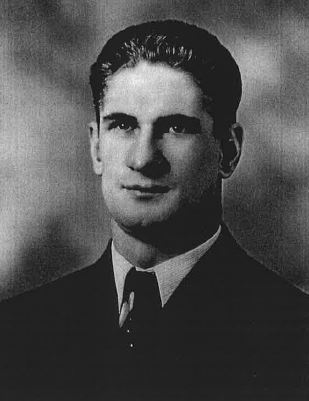By Dan McCaffery for the Sarnia Observer
He could run well in two fields.
Norm Perry, the legendary ‘Galloping Ghost’ of Canadian football, is best remembered as the fleet-footed halfback who led the Sarnia Imperials to a stunning Grey Cup victory.
What’s been largely forgotten over the years is that he also hit pay dirt as a politician. In fact, after hanging up his cleats Perry became Sarnia’s 56th Mayor. And he was as brilliant with the gavel as he had been with a pigskin, playing an important role in leading the City out of the Great Depression.
Born in Sarnia on June 1, 1904, Perry worked for Imperial Oil all his adult life.
He came to national Prominence in the 1930’s as the leader of the upstart Imperials Football Club. Noted for his blinding speed and smooth catching hands, Perry led the Imps to a Grey Cup win over the Regina Roughriders in 1934.
He quit football shortly after that and ran for City Council, easily winning an Aldermanic seat in the 1936 election.
Three years later, at age 34, he was acclaimed one of the youngest Mayors in the City’s history. It was a difficult time to be in politics. The Great Depression had ruined the economy and the Second World War was about to break out.
Nevertheless, Mayor Perry pushed ahead with several projects.
He wanted Council to proceed with construction of a proposed recreation centre/arena complex, feeling such a facility would benefit the City’s young people. But the project failed to get off the ground after citizens voted against spending $75,000.00 on it in a referendum.
“Whatever feeling of disappointment I have is for the youth of our City”, the Mayor said after the votes were counted.
In June he led a City delegation to London, ON, to greet King George VI. The prospect of meeting the King made him more nervous than playing for the Grey Cup, he said.
His year at the helm was successful by any measuring stick. Welfare rolls dropped, new home construction soared to a 70-year high, there was a slight municipal budget surplus and Christina Street was resurfaced.
The City also supplied water and electricity to the government docks, helping to attract 76 ships for winter berthing. The move did much to stimulate local employment.
Despite his successes, he was defeated when he ran for re-election in 1940. At the time, there was speculation that voters turned on him because he had originally said he wouldn’t seek a second term.


